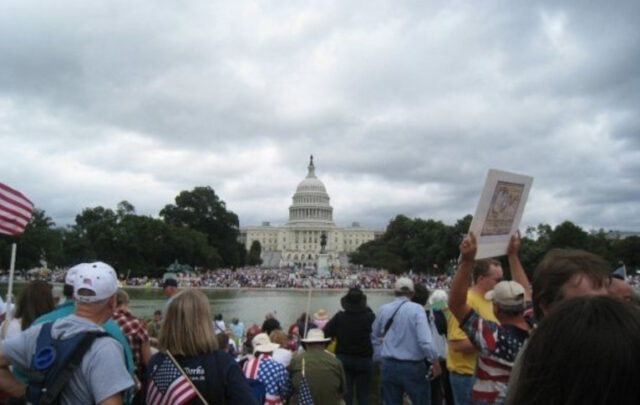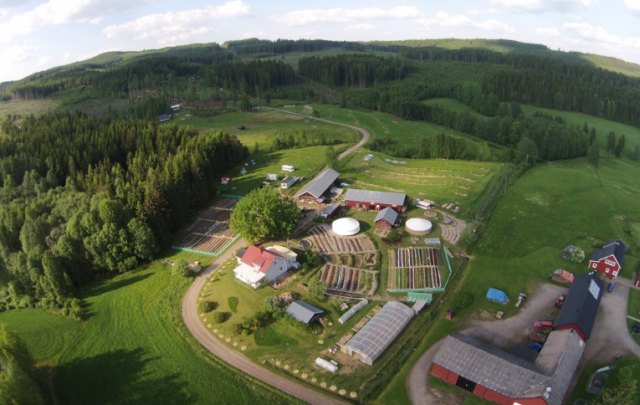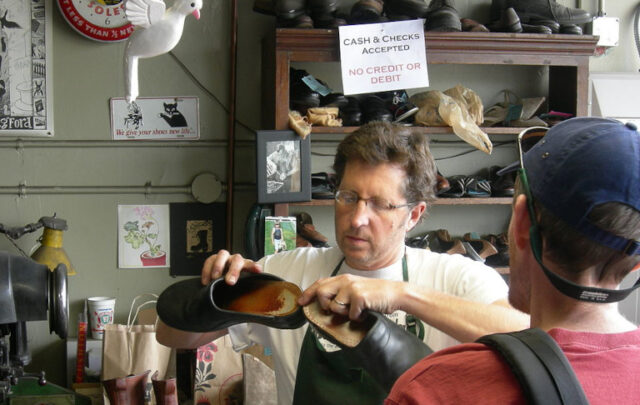
I suppose I have no option but to write about Brexit, adding my own small voice to the torrent of verbiage that’s already been devoted to the current extraordinary events.
There are endless possible questions and implications to be traced. How they’ll play out is anybody’s guess. What does already seem clear is that the Vote Leave campaign was based on a series of lies that have already unravelled, and its soundbite-politician architects have absolutely no clue how to deal with the political, economic and social mess they so carelessly engineered. Maybe some of the present sky-is-falling rhetoric of my fellow remainers will prove in time to be overblown, but as things stand scenarios like the end of Britain’s EU membership, the end of the EU itself, the end of the United Kingdom, the end of peace in Northern Ireland, the end of the UK’s voice in the world, the rise of racism and nativism in Britain and in Europe, the self-destruction of the Labour Party, recession, job losses and major, long-term national impoverishment are all on the cards, if not already happening. That’s a big list of achievements, though not in a good sense, for our electoral representatives to pull off at a single stroke. Many of them were probably inevitable in the longer term anyway, and some of them aren’t necessarily all bad in themselves. “Collapse now to avoid the rush” as some of my pro-Brexit neo-agrarian friends have put it. A considered retreat is one thing, unforced self-destruction quite another. Still, it’s been plain enough for a while that the days of the current global order are numbered and it would be naïve to imagine that the transition to the next one is always going to be smooth. What really matters is what the next order will look like.
It’s tempting to pursue that question along the many convoluted byways of the Brexit issue, but perhaps it’s best if I stick to this blog’s main themes – sustainable farming and the kind of politics that can foster it. In this post, I’m going to focus on the politics. In the next one, I’ll take a closer look at the agricultural implications of Brexit.
I’ve long argued that if we’re to create a sustainable agriculture (and therefore a sustainable culture) a more localised politics is needed, so on the face of it perhaps that ought to put me in the Brexit camp. Certainly, a lot of anti-neoliberal, pro-small farm folk I’ve encountered have pinned their colours to the Brexit mast – but not many of them are actually British. There are some local and some wider dimensions of the EU issue that complicate any simple Brexit = localism equation. It’s worth examining them, because they raise important questions about the politics of a neo-agrarian transition.
To flesh out the local issues, where better to start than my hometown of Frome? In the town elections last year, its denizens chose an independent local party – Independents For Frome – over established national party candidates for every single one of the town council’s seventeen seats. But in the EU referendum, as far as can be inferred from aggregate figures, they voted to remain. A contradiction? I don’t think so. Arguing for a localization of politics doesn’t necessarily mean that politics should only be localized. The trick is to create nested systems in which decisions, arbitration and spheres of influence are appropriately structured at different geopolitical levels – including very broad, global or continent-wide levels. In my vision of a more localised politics, there’s room both for organisations like Independents For Frome and for ones like the EU. Political scientists have been talking for some time of a ‘new medievalism’ in contemporary global politics, by which they mean that the Westphalian system of nation-states is breaking down into a more polymorphous politics of cities, regions, nations, identities, para-statal organisations, supra-statal organisations, trading leagues and so forth, rather like the more politically variegated pre-modern age. By contrast, the Brexit campaign was founded on a conservative, nostalgic, modernist project of reclaiming sovereignty for the nation-state. It’s not a project that I think can succeed, and it’s not one that I support anyway.
I suppose I might have supported it if I felt there was something worth rescuing in the concept of national sovereignty. The EU has its problems, after all – though in the cold light of day the wilder flights of the Vote Leave campaign are beginning to look a bit silly. It wasn’t the EU, it turns out, that was lurking in the park waiting to pounce on unsuspecting women and children, or creeping into your house at night to disorder your CD collection and steal odd socks from your washing machine. And the fact is, Westminster has its problems too. From medieval times, Britain has had very weak traditions of local political autonomy, which is one reason why it once rose to prominence as a global power above other European countries. Like many countries, it has strong traditions of popular radicalism, but more than many countries those traditions have been consistently frustrated by a political elite that has cannily absorbed most of the challenges to its power and kept a more or less continuous grip. The main checks on its power over the last couple of centuries have been the politics of organised industrial labour, the politics of municipal radicalism, the troubled politics of the UK union, and the EU. The first two were eclipsed in the 1980s (the self-destruction of the Labour Party in the wake of Brexit merely being another sad coda to that tale). The EU has now gone, and with it possibly the union. So although the referendum has left some blood on the carpet inside the conservative establishment, it’s also quite possibly delivered it a firmer grip on power than at any time since the beginning of the nineteenth century. Good news if you support the Conservative Party, and its neoliberal, pro-rich policies. Less so if you don’t hold this self-serving political class in high regard, which – bafflingly – seems to be a major point of issue for the Brexiteers. The truth is, Westminster has a crushing, centralising, conservative, undemocratic grip on power – the notion that the referendum is somehow liberatory for a more sovereign and localised politics seems to me very much mistaken.
There are many aspects to that lack of democracy. Some stem straightforwardly from Britain’s political institutions: the monarchy, the House of Lords, first-past-the-post voting, the stifling of municipal independence. Others have broader socio-political causes: inequalities of wealth, landownership and education, the corporate grip on the press and so on. But more important than the notion of democracy-as-voting is democracy as social interaction, the endless frictions, accommodations and slippages between us as individuals and as interest groups in our multiple social roles that constitute a democratic civil society. That’s what needs nourishing if we’re truly to build democracy, and it’s taken a hell of a battering in this referendum campaign.
A lot has been made of the class character of the Brexit debate – the out-of-touch political class, the cappuccino-quaffing, don’t-know-how-the-other-half-lives remain voters (though of course, Boris Johnson et al qualify on both counts there) versus the excluded post-industrial working class who want to take back control of their lives, who want to count for something again. I agree with Frome’s own Guardian man, John Harris, in dismissing what he calls “that lousy old Marxist trope of “false consciousness”, whereby people enthusiastically following the supposedly wrong cause are only a speech or poster away from enlightenment, and a sharp left turn”. But you don’t have to be all that Marxist to question the class mystification involved in the Brexit case for national sovereignty, a point that leaps out at me when I reconsider the work of Leopold Kohr in the light of the referendum.
Kohr’s book The Breakdown of Nations (1957) was one of the early offerings in the green localisation movement that I still consider myself to be a part of. When I read it a few years ago I thought Kohr had some wise things to say. I still do, but looking at this article about Kohr’s book in the context of the UK referendum (thanks to Ruben Anderson for drawing it to my attention) makes me think that we in the localisation movement need to raise our game. “Kohr,” the writer claims, “understood that God made atoms small, that small business invigorated the economy, that only a small number of people created real social change and that virtue came in a small box. He appreciated that we lived in a microcosmos, not a macrocosmos.”
To my mind, that’s a list of non-sequiturs. The size of atoms has nothing whatever to do with the size of polities. We live simultaneously in a microcosmos and a macrocosmos. And so on. Kohr argued that smaller European states have an organic primacy over larger conglomerate polities – Scotland as against the UK, for example. But here he succumbs to the seductive power of nationalist mythology. The myth of ‘Scotland’ has no more intrinsic coherence than the myth of the UK, or the myth of the EU. Consider the divisions between highland, lowland and island; Protestant and Catholic; the class connivance of the lairds with English interests against their tenants after 1746; lord versus subject; Rangers versus Celtic; English versus Gaelic; 45% for independence versus 55% against; 62% for EU membership versus 38% for exit. There is no single, coherent story to tell of authentic ‘smallness’ here that righteously divides the UK from the EU, and Scotland from the UK.
There is a coherent story to tell (though it’s only one of many) of authentically small farms, businesses and communities as parts of larger human and non-human conglomerations. It’s a story I’ve tried to tell on this blog and will continue to do so. It’s a story that can be told within and against the EU, within and against the UK, within and against Westminster. But I think I’d prefer to tell it within the EU, within the UK, and against Westminster. And if the EU has become an unreformable cabal of power-hungry neoliberals, then so has Westminster, with bells on, for at least the last forty years.
Still, what’s done is done. I think the worst (if probably the likeliest) thing now would be a messy compromise, which will leave the Brexit voters feeling cheated of their victory. So – perhaps to contradict my recent post on the perils of right-wing populism – I think what I’d most like to see from here is a clean, hard break from the EU under a Johnson premiership. No access to the single market. The promised brakes on immigration, so long as they’re done with humanity (and, of course, the return of all Britain’s own EU emigrants). It’s not that I vindictively want to see my country and its Brexiteers suffer the full consequences of their actions, but I think without it the lessons won’t be learned. Immigration was never fundamentally the problem. Bureaucratic EU rules were never fundamentally the problem. A declining post-industrial power drifting aimlessly in the sea of neoliberalism was the problem. Alternative economists talk about the ‘addictive’ nature of the mainstream economy, and as many an addict will recount you have to hit rock bottom before you can begin the path to recovery. Perhaps ironically a Johnson premiership in a fracturing, isolated UK under massive trading disadvantages could be the best hope that the long and divisive grip on power by a conservative establishment might finally crumble under the weight of its own contradictions, just at the moment of its apparent triumph.
It’s a high risk strategy, but from where we now stand all strategies seem to me high risk. The risk involved in the one I’m advocating has been identified by Polly Toynbee: “When leavers find there’s no money and no exodus, that it was all lies, where does their wrath turn next?” Already we’re seeing a rise in racist incidents, leaflets circulating with the legend ‘No more Polish vermin’ and so on. When reality dawns on the Brexiteers, we progressive populists have a huge job on our hands to try to shape the succeeding political narrative for the best, and it’s suddenly become a lot more urgent.
So as well as a Johnson premiership, I’d also like to see a resurgent left populism articulating the alternatives. Let other power blocs feast on our vacated place at the world table while we pursue our self-enforced agenda of economic localism, out of which some good could certainly come. I’m not entirely convinced a resurgent left populism will happen – especially in the light of the Labour Party’s abjectly unresurgent behaviour at present – but as long-term readers of this blog will know, I’m ever the optimist. And, luckily for Britain, Small Farm Future is here to guide the country through the morass in its hour of need. Indeed, I’ve just heard that our board of directors has approved in principle the hiring of an extra staff writer to improve our coverage of these weighty issues. All it needs now is the funds to make the appointment. The donate button is, as ever, top right. So a message to any pro-Brexit non-British neo-agrarians reading this: please dig deep. My country needs you. It needs your support. Above all, it needs your foreign exchange.
Photo credit: By Source, Fair use, https://en.wikipedia.org/w/index.php?curid=17129852






